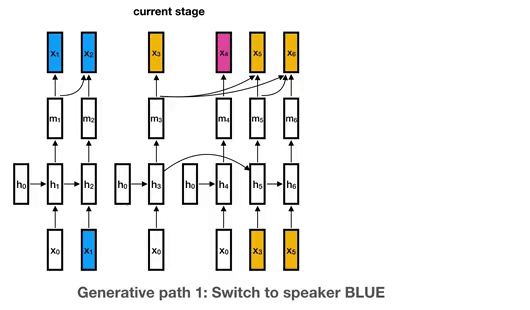17 Repositories
Python diarization Libraries

UniSpeech - Large Scale Self-Supervised Learning for Speech
UniSpeech The family of UniSpeech: WavLM (arXiv): WavLM: Large-Scale Self-Supervised Pre-training for Full Stack Speech Processing UniSpeech (ICML 202
This repo contains simple to use, pretrained/training-less models for speaker diarization.
PyDiar This repo contains simple to use, pretrained/training-less models for speaker diarization. Supported Models Binary Key Speaker Modeling Based o

The project is associated with the recently-launched ICASSP 2022 Multi-channel Multi-party Meeting Transcription Challenge (M2MeT) to provide participants with baseline systems for speech recognition and speaker diarization in conference scenario.
M2MeT challenge baseline -- AliMeeting This project provides the baseline system recipes for the ICASSP 2020 Multi-channel Multi-party Meeting Transcr
SpeechBrain is an open-source and all-in-one speech toolkit based on PyTorch.
The SpeechBrain Toolkit SpeechBrain is an open-source and all-in-one speech toolkit based on PyTorch. The goal is to create a single, flexible, and us
Identify the emotion of multiple speakers in an Audio Segment
MevonAI - Speech Emotion Recognition Identify the emotion of multiple speakers in a Audio Segment Report Bug · Request Feature Try the Demo Here Table

UniSpeech - Large Scale Self-Supervised Learning for Speech
UniSpeech The family of UniSpeech: UniSpeech (ICML 2021): Unified Pre-training for Self-Supervised Learning and Supervised Learning for ASR UniSpeech-

Demo for the paper "Overlap-aware low-latency online speaker diarization based on end-to-end local segmentation"
Streaming speaker diarization Overlap-aware low-latency online speaker diarization based on end-to-end local segmentation by Juan Manuel Coria, Hervé

Demo for the paper "Overlap-aware low-latency online speaker diarization based on end-to-end local segmentation"
Streaming speaker diarization Overlap-aware low-latency online speaker diarization based on end-to-end local segmentation by Juan Manuel Coria, Hervé
This repository contains a set of codes to run (i.e., train, perform inference with, evaluate) a diarization method called EEND-vector-clustering.
EEND-vector clustering The EEND-vector clustering (End-to-End-Neural-Diarization-vector clustering) is a speaker diarization framework that integrates

A data annotation pipeline to generate high-quality, large-scale speech datasets with machine pre-labeling and fully manual auditing.
About This repository provides data and code for the paper: Scalable Data Annotation Pipeline for High-Quality Large Speech Datasets Development (subm
neural network based speaker embedder
Content What is deepaudio-speaker? Installation Get Started Model Architecture How to contribute to deepaudio-speaker? Acknowledge What is deepaudio-s

PyTorch implementation of Densely Connected Time Delay Neural Network
Densely Connected Time Delay Neural Network PyTorch implementation of Densely Connected Time Delay Neural Network (D-TDNN) in our paper "Densely Conne

Simplified diarization pipeline using some pretrained models - audio file to diarized segments in a few lines of code
simple_diarizer Simplified diarization pipeline using some pretrained models. Made to be a simple as possible to go from an input audio file to diariz
Identify the emotion of multiple speakers in an Audio Segment
MevonAI - Speech Emotion Recognition

This is the library for the Unbounded Interleaved-State Recurrent Neural Network (UIS-RNN) algorithm, corresponding to the paper Fully Supervised Speaker Diarization.
UIS-RNN Overview This is the library for the Unbounded Interleaved-State Recurrent Neural Network (UIS-RNN) algorithm. UIS-RNN solves the problem of s
Neural building blocks for speaker diarization: speech activity detection, speaker change detection, overlapped speech detection, speaker embedding
⚠️ Checkout develop branch to see what is coming in pyannote.audio 2.0: a much smaller and cleaner codebase Python-first API (the good old pyannote-au
Neural building blocks for speaker diarization: speech activity detection, speaker change detection, overlapped speech detection, speaker embedding
⚠️ Checkout develop branch to see what is coming in pyannote.audio 2.0: a much smaller and cleaner codebase Python-first API (the good old pyannote-au